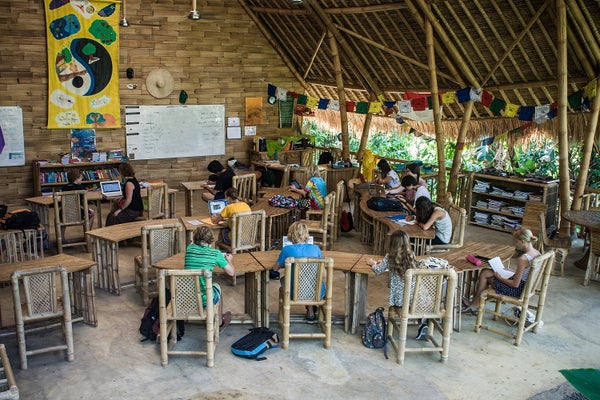October 21, 2024
6 min read
Worldschooling Is Catching On. Here’s What You Need to Know
People are pulling their kids out of traditional education to learn while they travel. Data on educational success are limited, but there are other reasons to consider worldschooling
Students at Green School in Bali, a well-known choice for parents who worldschool their children.
This piece is part of Scientific American’s column The Science of Parenting. For more, go here.
A decade ago I started studying an emerging trend among middle-class families who were taking their children out of school, selling their homes, and leaving well-paying jobs to travel the world. At the time, worldschooling was for self-proclaimed countercultural rebels. Today, it is smack dab in the mainstream. The pandemic may have temporarily halted travel for many families, but it has fueled a fascination with the worldschooling lifestyle, and its popularity has only grown. When parents realized that they could work and their kids could learn remotely, there was nothing to keep them fromhitting the road once pandemic restrictions eased. You’ve probably seen such families featured in the news or on social media and you may have even asked yourself: Should I be doing that with my kids?
There is very little scientific research to help answer that question, and we lack longitudinal studies on worldschooling’s long-term educational and developmental outcomes. For parents with wanderlust, the opportunity to liberate themselves from societal constraints, foster family bonding and raise globally minded kids may seem too sweet to miss. Some of these aspirations align with kids’ academic needs, but not always. So in the absence of hard data, how do parents decide to uproot their lives and let the world be their children’s classroom? Drawing on my ethnographic research with dozens of traveling families over the past decade, here are some factors to consider if you are weighing whether…
Read the full article here







